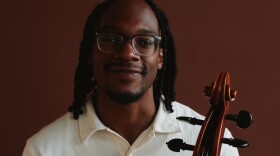Growing up, Dr. James Sanger loved wildlife and the outdoors. In college, he studied zoology. So when a urologist notified him of an orangutan with an injured hand at the zoo, Sanger happily heeded the call of the wild to help local primates.
Sanger currently serves as the plastic surgery hand surgeon at the Medical College of Wisconsin and chief of plastic surgery at the Zablocki VA Medical Center, but he has been called in as the Milwaukee County Zoo's primate hand specialist for the past 20 years.
The rest is history, says Sanger. The Milwaukee doctor's work is the subject of a feature in the March issue of Milwaukee Magazine.
Sanger notes that the zoo veterinarians are qualified to take care of most animal injuries and illnesses, but "the hand infections can be quite severe because of the anatomy of the hand...so we treat that in a similar fashion for humans and do the same for primates."
Sanger's training on humans has proved relevant for his treatment of primates. "I think the bonobos are extraordinarily close to us in the way they use their hands," he says. "Their thumbs are slightly smaller and they don't oppose it or bring it over quite like we do, but they manipulate fine objects. They use tools."
The volunteer work has provided Sanger insight not only about the appendages of primates, but also about the intricacies of their social structure. "They're very social animals. They have a family structure. They have a troop structure," he explains. "They have head [apes]. They have the goof offs, the serious [ones]. They clearly have a structure that humans can relate to in their social life."
Gaining the injured animal's trust to initiate treatment is something that happens slowly, Sanger explains. He says it is not in the animal's nature to reveal their disability. "In the wild if an animal is injured, they will hide totally, or they will hide that injured part. Because in the wild that might mean that they are now a target for a predator."
"When we first enter the area, the animals are always caged. I am not getting in a cage with an animal," jokes Sanger. "They're potentially very dangerous. They have very sharp teeth and they're very fast."
He explains that he and the zookeeper will begin to talk to the animal. "We'll gesture and give small treats like grapes or fruit. And the animal begins to relax. The animal is not watching me, its really watching the keeper, because that's where the trust is."
Patience proves beneficial, says Sanger. "When the keeper says it's ready, I move a little closer, and they sit me [down]. A few minutes later I get closer. And by that time, often, through gestures and speaking and the little treats, the animal will now show the injured hand."
Bonobos are endangered in their natural habitat of the forests south of the Congo River in the Democratic Republic of Congo, and Sanger says, the Milwaukee County Zoo's efforts in this area are important.
"I think its important that people realize that bonobos are not taken out of the wild [for the zoo] and that the populations in our zoo are self-sustaining," Sanger says. "The second part of the Zoological Society is the actual involvement in the preservation of habitat in the Congo...without habitat, there will be no bonobos."
Sanger is contemplating his opportunities with the zoo post-retirement from surgery on humans. "I keep threatening that one of these days I'll show up to shadow them."






